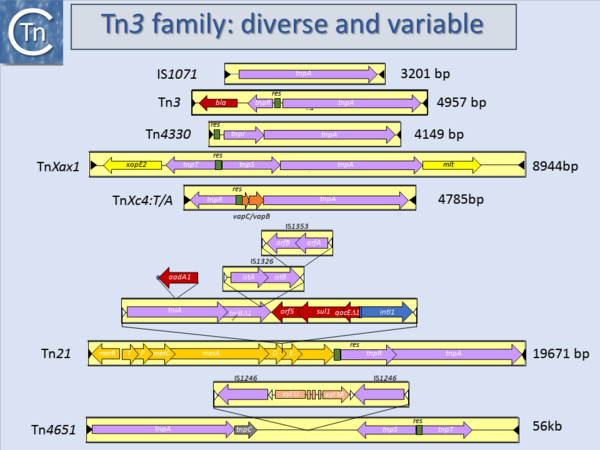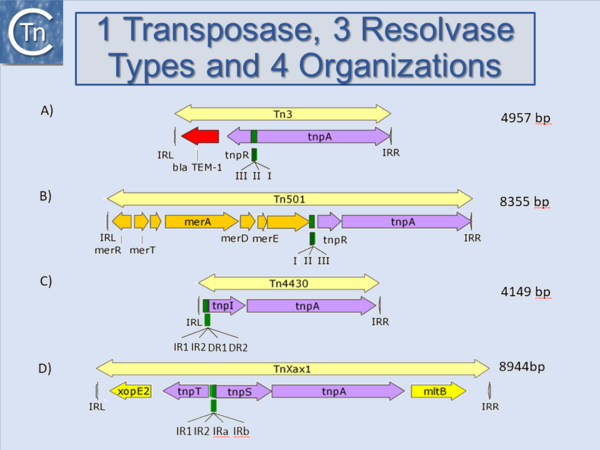General Information/ IS derivatives of Tn3 family transposons
Another source of ambiguity for classification purposes occurs in the Tn3 family (see section “Tn families”)[1](Fig.1.15.1 and 1.15.2). Tn3 family members are quite variable. They include a number of diverse passenger genes which can represent entire operons, notably mercury resistance, or individual genes involved in antibiotic resistance, breakdown of halogenated aromatics or virulence [e.g. [2]]]. They often carry integron recombination platforms enabling them to incorporate additional resistance genes by recruiting integron cassettes[3]. Members are quite characteristic: they have long relatively well conserved IR and a particularly long Tpase (950 to 1025 aa). They also encode a site-specific recombination (“resolution”) system necessary for completion of their transposition[4]. There are a number of different resolution systems associated with different members of this family (Fig.1.15.2) IS1071, (Fig.1.15.1 ) composed of Tn3-like IR and Tpase gene but lacking both the site-specific recombination system and passenger genes was identified many years ago[5][6]. This clearly accords with the definition of an IS. Several other examples have now been identified (e.g. ISVsa19, ISShfr9, ISBusp1).
Bibliography

